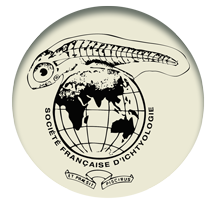Temperature influence on reproductive development and gamete quality in Atlantic cod (Gadus morhua)
Research into the influence of temperature changes on reproductive development in coldwater marine species, such as Atlantic cod, is little studied. Thermal effects on plasma sex steroids and egg quality were studied in broodfish exposed to different regimes during ovarian growth and the spawning season. Temperature influenced peak and/or temporal changes in plasma 17beta-estradiol (E2) concentration. Plasma E2 profiles of fish exposed to low temperature (4°C) were delayed by two to eight weeks, compared to fish held at 8°C and 12°C, accompanied by a corresponding shift in the timing of ovulation. Egg quality was significantly reduced by exposing fish to elevated temperature, but effects were timedependent. Fertilization percentage was reduced (12°C, 13%; 8°C, 27%; 4°C, 60%) by exposure of broodfish to elevated temperature during ovarian growth, but not during the spawning season. On the other hand, the proportion of eggs showing normal early cell cleavage was reduced (12°C, 12%; 8°C, 85%; 4°C, 96%) by exposure of broodfish to elevated temperature during the spawning season, but not during ovarian growth.


